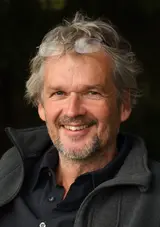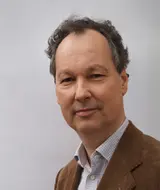The theme "KnowledgeWorlds" addresses early modern history as knowledge history under two central aspects: On one hand, it aims at knowledge cultures and milieus such as court, city and university. This by no means refers only to academic and scholarly knowledge, but above all to its interaction with other types of knowledge such as social, craft and pictorial knowledge. Not least, knowledge that is alive in practices and materialised in artefacts, its ties to class and gender, its circulation in networks and media will be addressed in the sections. In the past decade, the history of knowledge has developed rapidly into a sub-discipline in its own right, with the founding of journals, handbooks and differentiated questions and methodological approaches. It is important to reflect on this, also with regard to new possibilities, problems and limits of the concept.
On the other hand, the term WissensWelten aims at a globalisation and decentration of our perspective: on knowledge in and from other world regions. However, global knowledge history is more than just a reconstruction of knowledge cultures in non-European milieus: It poses the question of the connections and non-connections of knowledge worlds, of isolation or penetration, of transfer or the refusal of transfer. The conference theme not only follows on from the long-standing call to "provincialise" Europe. It also takes up the recently formulated scepticism about the assumption of omnipresent "connectivity" and therefore asks about globalisation as well as de-globalisation. In this way, it confronts the methodological and conceptual problem of what interconnectedness can mean in relation to knowledge. Thus, "WissensWelten" means both: knowledge cultures and global knowledge history.
The conference theme thus picks up on both the knowledge-historical focus of the Gotha Research Centre and the location of the royal seat: Courtly knowledge against the background of large collections, libraries and archives, with its freedom from academic constraints but also its ties to dynastic representation, its proximity to military, artistic and possibly even alchemical-laboratory know-how is a paradigmatic case for the history of knowledge. The court forms a cosmos all its own with its own possibilities and rules, including the tactics of simulation, dissimulation and assertion of power. Therefore, in it, as in a laboratory, the communicative setting can be observed in which different forms of knowledge interact with each other. This can be analysed just as well as in Gotha in Istanbul, in Delhi, in Beijing or in Cairo, possibly with quite different results in each case. There were worlds of knowledge here as well as there, and reports about the worlds of knowledge of others can be found everywhere in the archives.
The conference in Gotha will cover a wide range and include sections on both European and non-European cultures of knowledge as well as on their interconnection. The following guiding questions seem particularly relevant:
In what ways did knowledge "travel", "migrate" or "circulate" between different cultures? What active or passive role did courts in particular play - when they financed journeys, received diplomats or acquired foreign-language books? Were there differences between the circulation of "small facts" and larger units such as theories, complex practices or entire world views? Which carrier groups played a role? Were there differences between the transmission of material objects and that of ideas, and what did these consist of? What kind of transcultural references did courts, trading cities, universities or academies have? Did scaling play a role, i.e. did small courts act differently from large ones in terms of knowledge? Did this have an effect on the transformation or non-transformation of knowledge? What adaptations, but also what forms of resistance to adaptations, can be observed in each case? Was there also a transcultural circulation of practices, bureaucratic norms or image motifs? What role did non-knowledge, non-connectedness, isolation and misunderstanding play in this? What were the political implications of certain knowledge transfers? And finally: How can all these different and sometimes divergent questions and aspects be methodologically and conceptually anchored in the profile of a Global History of Knowledge?
The complete conference programme with sections and accompanying events will be announced in summer 2024.


